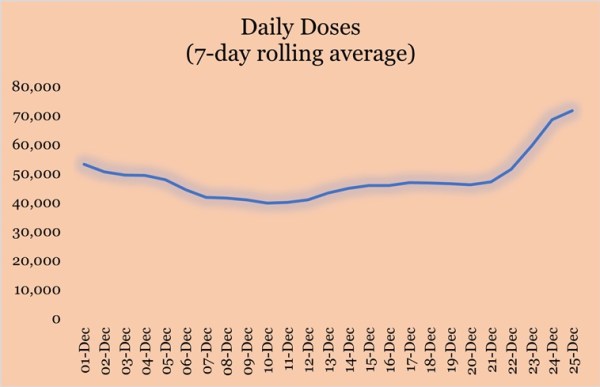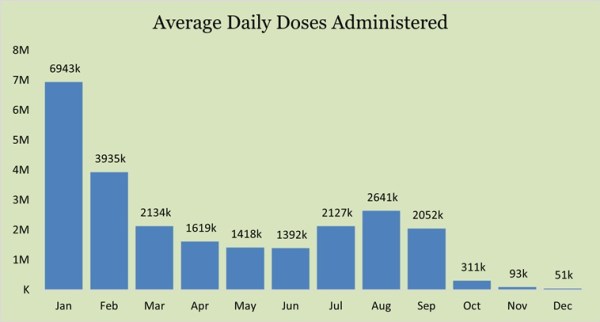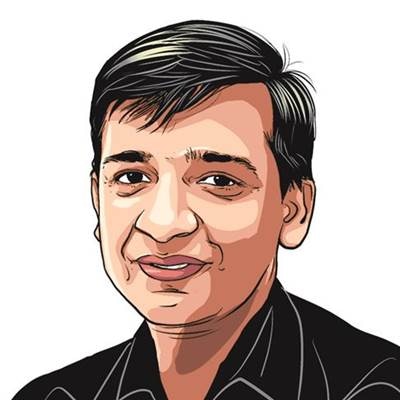Reports of a massive surge in Covid-19 infections in China and apprehensions over the possibility of a spill-over effect in India has led to a sharp uptick in the vaccination intake in the country in the past week. On Friday (December 23) and Saturday, more than one lakh vaccinations were administered in India against an average of between 40,000 and 50,000 doses through most of this month.
Despite it being a festival day, close to 30,000 people got themselves vaccinated on Sunday, which was the highest among the previous nine Sundays. In fact, Sunday vaccination numbers had remained well below 10,000 for the past five weeks.
With the last wave of infections having ended nearly nine months ago, interest in vaccination had been declining. Data shows that over 92 per cent of the population above the age of 12 years — the eligible group for vaccination in India – have been vaccinated with the primary two doses. In addition, there is a small proportion of people, across all age categories, which have received the first dose but not the second dose.
However, the uptake of booster doses is still quite low. Less than 22 per cent of the eligible population has so far received the booster, or precautionary, dose. This is mainly due to the lack of enthusiasm in the younger population groups amidst a significant decline in the perceived threat from Covid-19. Among the senior citizens — those above 60 years of age — the penetration of booster doses is a healthy 60 per cent.
Booster doses began to be given in January this year, first among the senior citizens, and by the middle of August over 50 per cent of the 60-plus age group had received these additional doses. In the first eight months of this year, nearly 28 lakh vaccine doses were getting administered every day on average. This number for the subsequent period is less than 6.5 lakh every day.
But the reports coming in from China look set to change this trend, at least in the short term. If no indication of a spill-over effect materialises in the next few days, the enthusiasm in vaccinations could start to wane again.
A question that remains unaddressed is whether people would be asked to take second booster shots in case of a fresh resurgence in infections. The immunity gained, either through natural infection or vaccines, is not permanent. We still don’t have a very good estimate about how long the immunity lasts, but all current strategies have been devised on the premise that it does not continue beyond 9 months to a year. In that case, a bulk of the Indian population would have its immunity weakened severely by now.
In some other countries, a second or even third booster dose has also been administered, but it has not so far been mandated in India. The threat of a fresh resurgence of cases because of a spill-over from China does not appear to be high. However, a new wave of infections, even independent of the Chinese situation, cannot entirely be ruled out. The virus has not disappeared from the population yet, and other countries have had multiple waves during the time that India has witnessed a relative lull.
Babar Azam brings up ninth Test ton against New Zealand, shatters multiple records

 Amitabh SinhaAmitabh Sinha is Resident Editor, Pune. He writes on Environment, Clim… read more
Amitabh SinhaAmitabh Sinha is Resident Editor, Pune. He writes on Environment, Clim… read more
